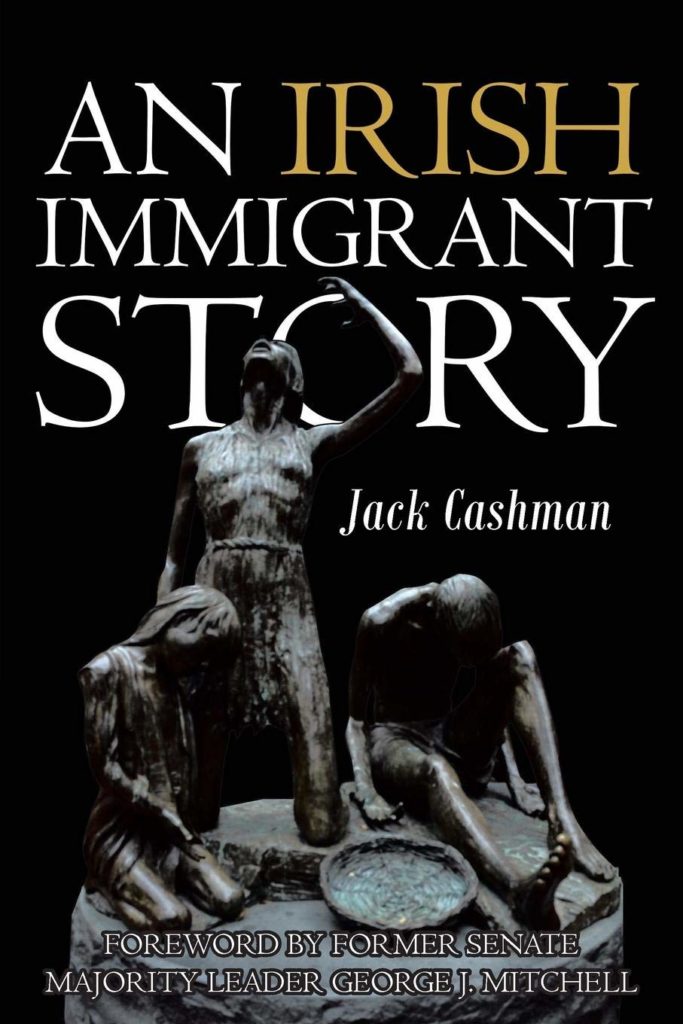The Story of a People Finding Their Own Place at Home and Abroad
by Jack Cashman, Nov 20 2019
In 1848, as the Great Hunger ravaged Ireland, my ancestors on both my mother’s and my father’s side were forced to leave Ireland for America. Today, as we see the demonization of immigrants in the United States, it is important to remember that this is not a recent phenomenon.
As a country, we have a long and unfortunate history of scapegoating and vilifying our immigrants, even though we are a nation of immigrants at the core. The Irish immigrants of the mid-19th century were no exception, experiencing some of the cruelest cases of bigotry and discrimination of any race of people arriving on our shores.
In search of a better life, Irish immigrants were a favorite target for those already living in the United States—an “other” to look down upon. As documented in my recently published historical novel, An Irish Immigrant Story, Irish refugees hoping to escape the Great Famine were not treated well upon their arrival in America and for the duration of their stay. “Irish need not apply” signs were common, along with crueler signs like, “No dogs, no pigs, no Irish.”
In Boston Harbor, Irish immigrants were quarantined on Deer Island before they were allowed to enter the city. Why? Because they were thought to be “dirty and diseased.” One newspaper opined that, if the Irish were sent back to their homeland, it would solve America’s crime problem. Another claimed that, if one were to scratch the skin of any criminal, chances are it would mean scratching an Irish Catholic. News outlets routinely depicted Irish immigrants as drunks with little value to society.
Many immigrants barred from employment by a bigoted population were reduced to begging in the streets. They escaped the Great Hunger with hope in their eyes, only to find themselves living in dire poverty abroad. Unfortunately, it was much of the same: In their own country, the Irish had been subjugated. They were made to work as tenant farmers for the wealthy class of landowners. Seen as lesser beings, the Irish were forced to subsist on the potato crops they were allowed to plant. So, as the blight hit the potato, they were left with a difficult choice: Face starvation in their own country or flee to another.
In An Irish Immigrant Story, John McCarthy and Johanna Cashman—along with over a million others—immigrated to America to escape a devastating famine. They left behind family members who faced starvation to come to a land that would give them a new opportunity for a better life.
Or so they thought. Johanna and John were soon made aware that they were not welcome in this new land. They realized that every day would present a new struggle for survival. Through it all, John and Johanna got married, determined to raise a family in their adopted country. And, in spite of the many obstacles they encountered, including John’s untimely death, that family grew and found success in America. The second generation even used that success to lend assistance to the country they left, contributing to Ireland’s drive for independence.
An Irish Immigrant Story is a historical novel that tells the story of a family who found success in the face of unprecedented adversity. It is a story that relates to over a million Irish immigrants and their families, who toiled and toiled to find their own place in America. At the same time, the book chronicles the drive for independence of a country that fought to forge its own place in the world.
About the author:

Jack Cashman’s career has put him in a number of roles, although the title of “author” is a relatively new one. Coming from a background of small business ownership, real estate, and insurance, Cashman was first elected to serve in the Maine House of Representatives in 1982. After five terms in office and some time away from state government, he returned to public service in 2003 in a variety of roles with the administration of Maine Governor John Baldacci. Cashman’s first book, An Irish Immigrant Story, was published in 2018 as a historical novel based on the story of his own family’s journey from Ireland to the United States during the time of the Potato Famine. Cashman’s unique background of business owner, elected office-holder, and government official combine with his creative mind to bring together a collection of stories unlike any author working today. Jack has spent nearly all of his life in Maine, and currently lives in Hampden with his wife of nearly 50 years, Betty. They are the proud parents of two sons and grandparents of five granddaughters.













